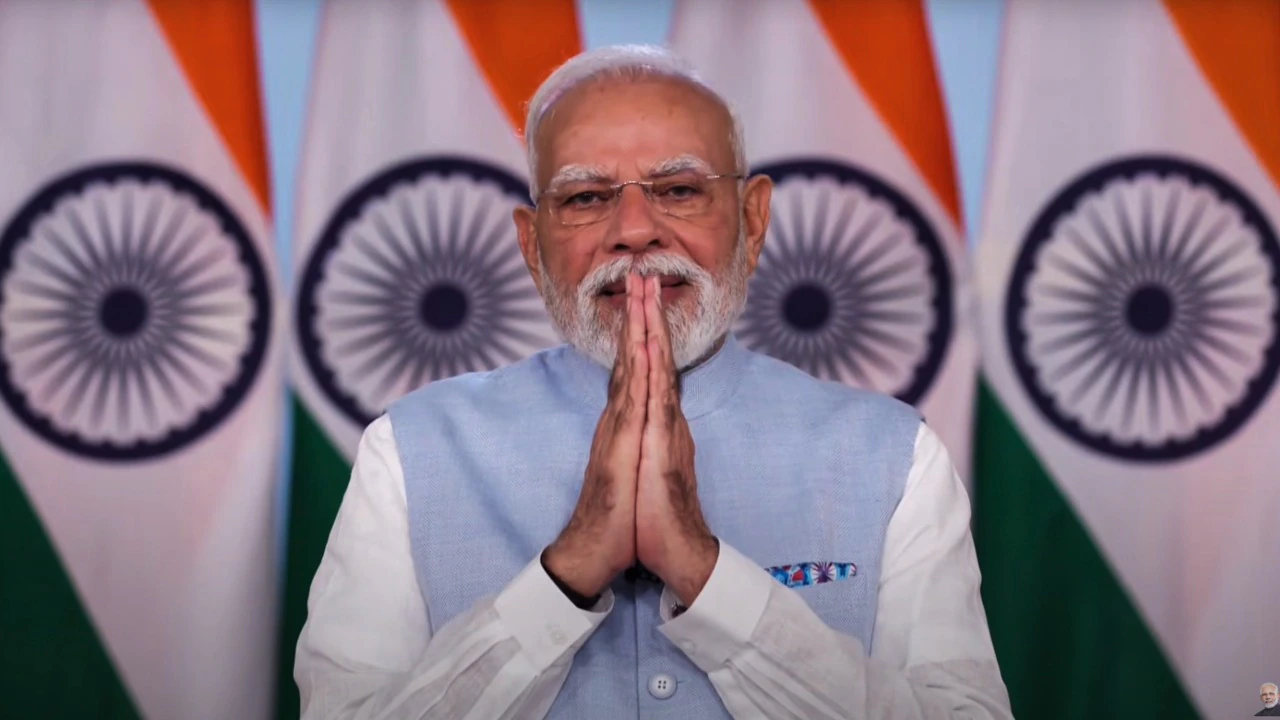By Azeem Khan,Contributor,George Pimentel
Copyright forbes

TORONTO, ONTARIO – AUGUST 01: NBA Champion Tristan Thompson attends The Amari Thompson Soiree 2019 in support of Epilepsy Toronto held at The Globe and Mail Centre on August 01, 2019 in Toronto, Canada. (Photo by George Pimentel/Getty Images)
Getty Images
Tristan Thompson has spent over a decade under the brightest lights in basketball. An NBA champion, Canadian national, and household name thanks in part to his high-profile personal life, Thompson is now entering a very different arena: blockchain. At 34, with his playing career winding down, he is channeling the same drive that got him to the NBA into building Basketball.fun, a platform that aims to rethink how fans, data, and players intersect in the modern game.
When asked how life after the NBA has changed him, Thompson pushes back on the idea that everything feels different. “I don’t think much changes,” he says. “It’s still the same journey and grind. The players on the court are different, but now it’s about testing the mind, opening up my brain, and unlocking a pathway I’ve never had to before. It’s almost like feeling like a rookie again.”
Thompson credits his time in the league for shaping his mindset as a builder. “Hard work beats talent when talent doesn’t work hard,” he says. “Give me the guy that’s going to fight tooth and nail for greatness. Even if he never achieves it, I’ll bet on him because someday he’ll find a breakthrough.” He points to LeBron James as the ultimate example, recalling how the superstar would show up in Cleveland a month before training camp started, often in the gym by 7 a.m. “Seeing that as younger players, it motivated us. Especially Kyrie and I. It was clear Lebron was on a mission, and we felt it was on us to help him achieve it.”
His transition into business has been shaped by years in the public eye. As part of one of the most media-savvy families in the world, he has seen first-hand how brand and distribution can elevate a business beyond a product. He points to how each member of the Kardashian-Jenner family built ventures aligned with their lifestyles. Skims for Kim, cosmetics for Kylie, tequila for Kendall. “The one thing about my family and what they’ve built is that it’s organic to who they are,” Thompson says. For him, this next chapter has to carry the same authenticity. “It’s about addressing the issues that matter to my world.”
Plenty of athletes have turned to businesses like real estate, restaurants, or media production after their careers wind down. LeBron James built a portfolio spanning SpringHill Entertainment and Blaze Pizza, Michael Jordan has long invested in real estate and past NBA ownership stakes, and Kevin Durant has backed startups ranging from Coinbase to Postmates. Thompson wanted something different. He sees blockchain as the next frontier in financial literacy, comparing it to when earlier generations of athletes explored Wall Street. “This is digital finance, digital assets,” he explains. “It’s no different than forty years ago when athletes went into banking and investing. For me, this is the next Wall Street.” That drive to learn a new industry, he says, is about creating opportunities not only for himself but also for others who lack access to financial and technological education.
MORE FOR YOU
At the center of Thompson’s push into blockchain is Basketball.fun, a platform built on the idea that fans deserve a bigger role in the game they love. The idea of giving fans more influence isn’t new. Projects like NBA Top Shot introduced millions of people to digital collectibles. Even Formula 1 has experimented with blockchain partnerships to bring fans closer to the action. “Social media has already shown it can influence everything from coaching decisions to player narratives,” says cofounder Herman Narula. “By letting fans put real data and predictions behind their opinions, we can turn that influence into something measurable that leagues and teams can’t ignore.” Thompson believes Basketball.fun can build on those early experiments by moving beyond collectibles and token sales toward something that gives fans real-time influence over the conversation around players and teams.
He points out that teams, leagues, and media outlets always say fans are the lifeblood of sports, but rarely give them real influence. “Everyone says the fans make the league,” Thompson says. “But do they really invest back into it? We want to empower the fans because they have knowledge that people in suits often overlook.” The platform aims to let fans use data, predictions, and even real-time sentiment to shape conversations around player performance and value, something Thompson sees as long overdue in basketball.
Beyond the vision, Basketball.fun is designed as a fan-powered prediction and data platform. Users can back their views on players and games with real stakes, creating a live market for player performance and sentiment. Instead of passively watching, fans get to participate in valuing talent, spotting emerging stars, and shaping conversations around the sport. The platform uses blockchain to make these markets transparent and secure while avoiding the high fees and gatekeeping common in fantasy sports or fan token projects. It will only be available on the Somnia blockchain, which went live earlier this month.
For Thompson, building a company requires the same focus and sacrifice as winning in the NBA. “I think everything in life is the same DNA, the same recipe,” he says. “It is being a workhorse, putting in the time, no shortcuts.” He recalls leaving home at sixteen to pursue basketball at a boarding school in the U.S., a decision that set him on the path to the NBA. Now, with three young children at home, he admits that traveling the world to launch a tech company requires the same kind of commitment. The difference this time is that the arena is digital rather than physical.
Thompson believes technology can fundamentally change how fans interact with the game. He sees Basketball.fun as part of a larger shift toward platforms that give communities real influence rather than passive viewing experiences. “We want to be disruptors,” he says. “Not to critique, but to ask what else is out there. We can change how fans connect with sports forever.” His cofounder Hadi Teherany compares the idea to prediction markets that have disrupted politics and finance, pointing to platforms like Polymarket, which have grown rapidly as users wager on everything from elections to economic data releases. He argues that the same fan-driven data shaping political coverage today could one day influence player valuations and even front-office decisions in professional sports.
While other platforms have experimented with fantasy sports, fan tokens, and prediction markets, Thompson insists Basketball.fun takes a different approach. He points to issues like high fees and limited transparency on existing platforms as areas ripe for improvement. “Other products charge predatory fees and keep real influence locked away,” he says. By giving fans a voice backed by data and real player participation, he believes the platform can deliver better insights and a stronger sense of community than anything on the market today.
Looking ahead, Thompson says his motivation comes from proving doubters wrong. “Five years from now, I want people to say when I first saw him at a crypto conference, I doubted him. And now he has built something real,” he explains. The same determination that got him to the NBA when people told him Canadians don’t go to the league fuels his work in the tech world. For him, Basketball.fun is not just a product launch, but a chance to show that athletes can be builders, innovators, and leaders well beyond the game.
For other athletes thinking about life after sports, Thompson says the key is self-awareness. “You have to know who you are to find your next move,” he says. “Find something that excites you the same way the game did. Otherwise you risk losing purpose when your playing days end.” Too many players, he adds, struggle with the transition because they never discover what drives them outside of basketball. “The sooner you figure that out, the smoother the next chapter will be.
Editorial StandardsReprints & Permissions



